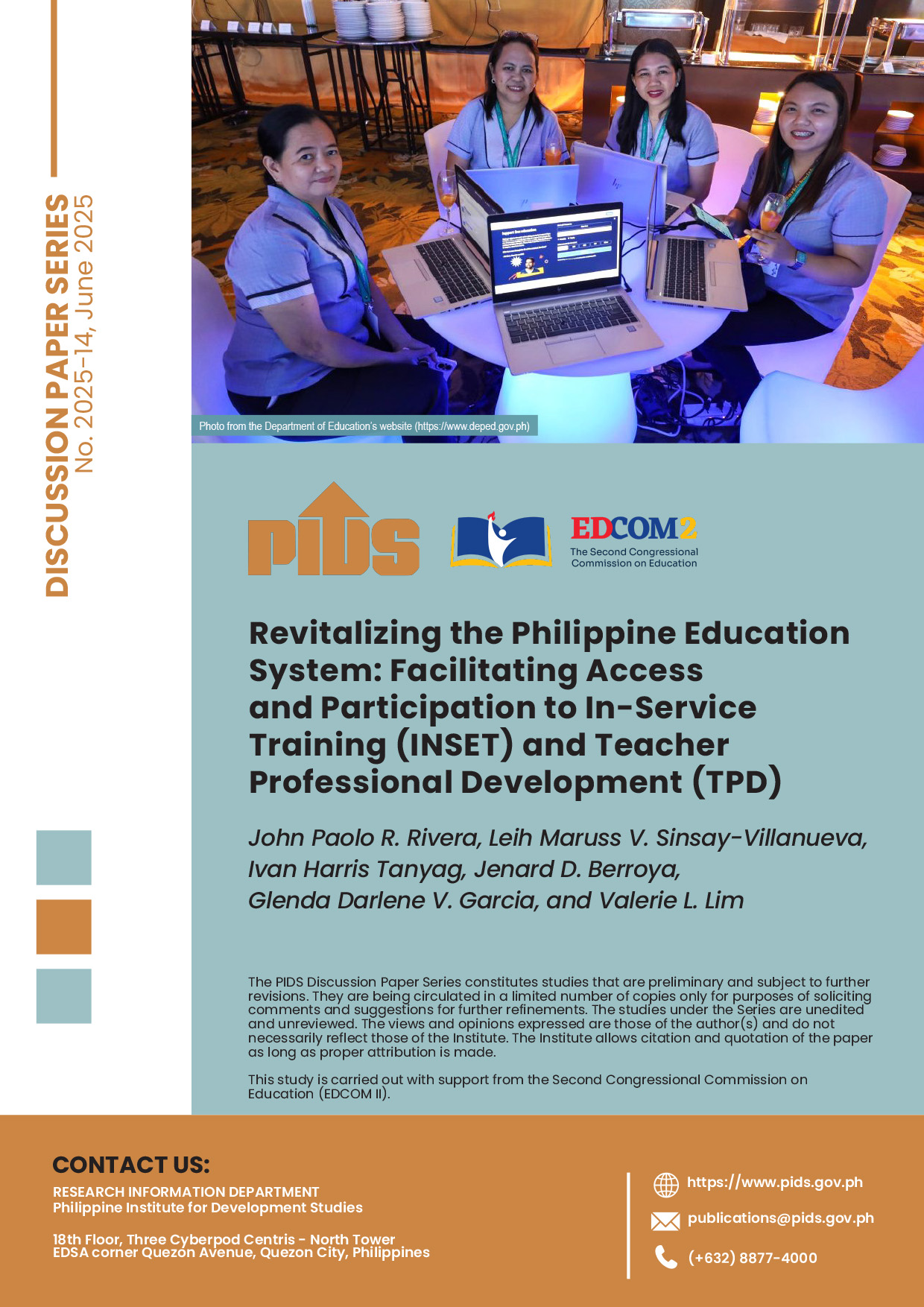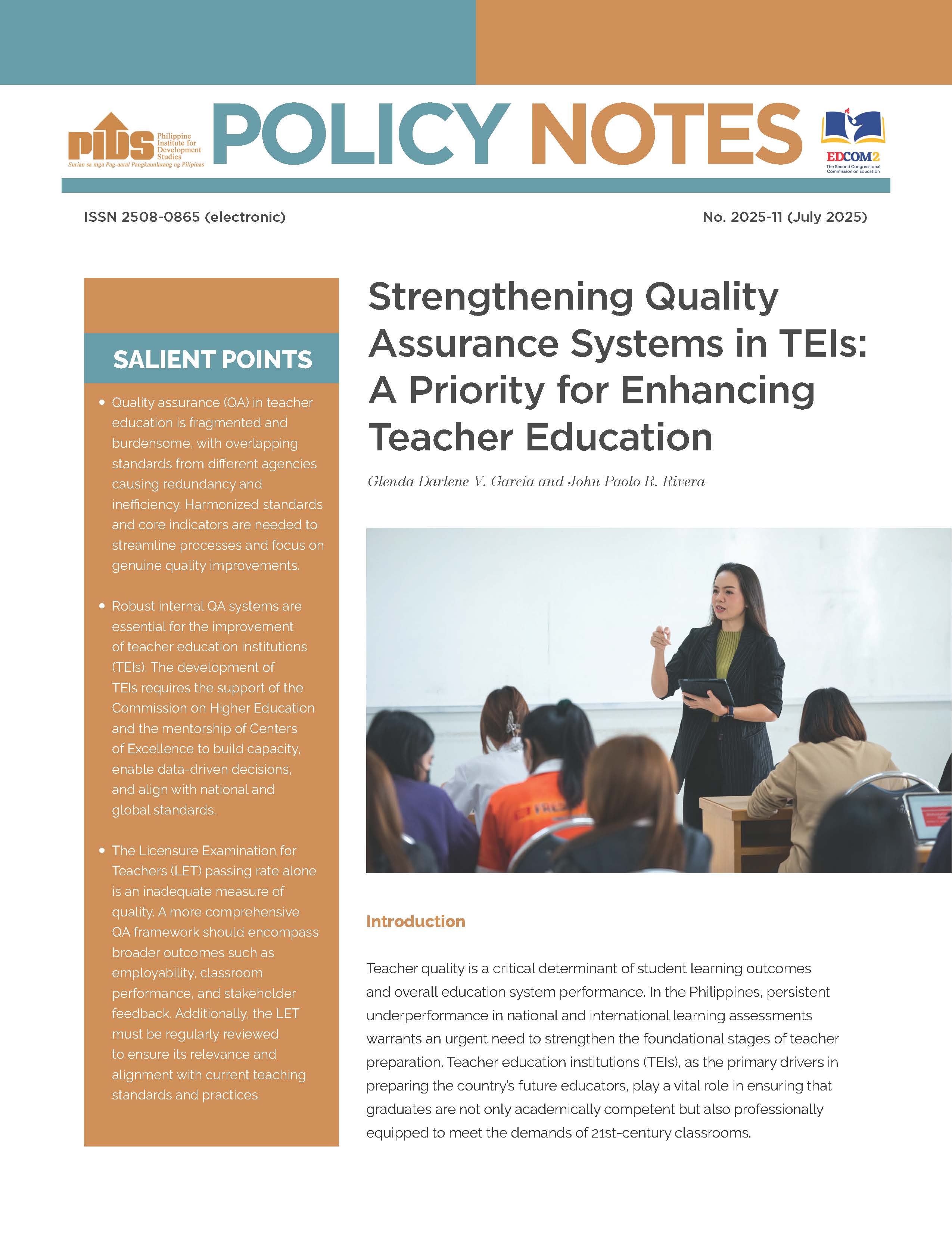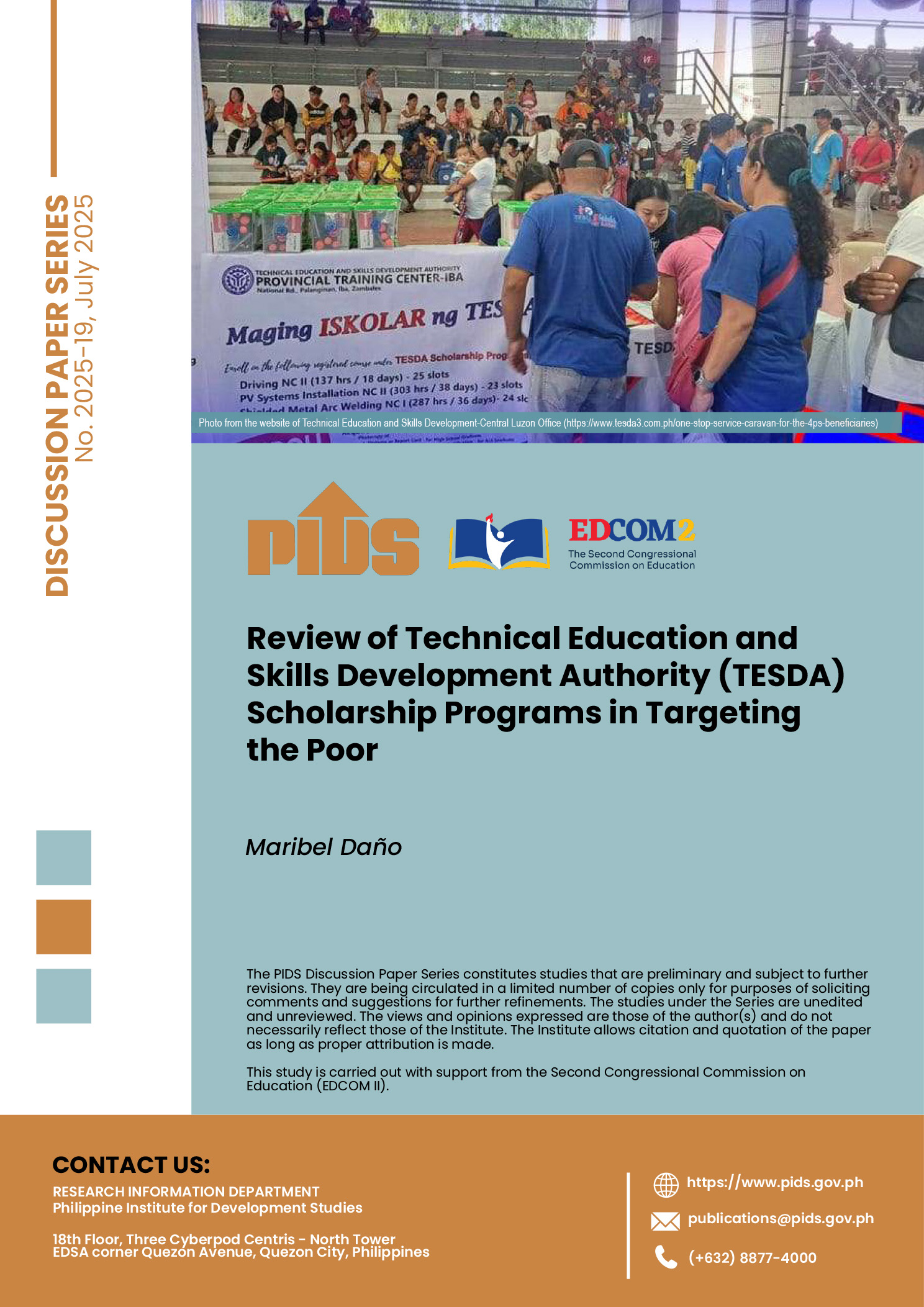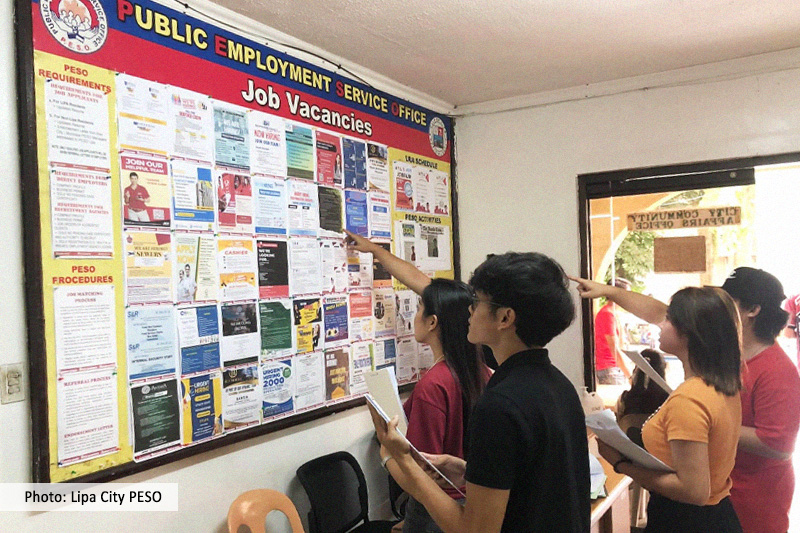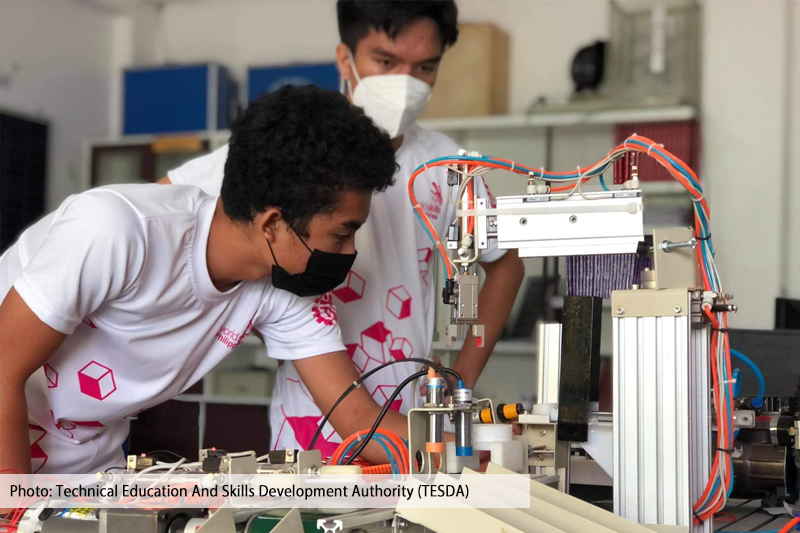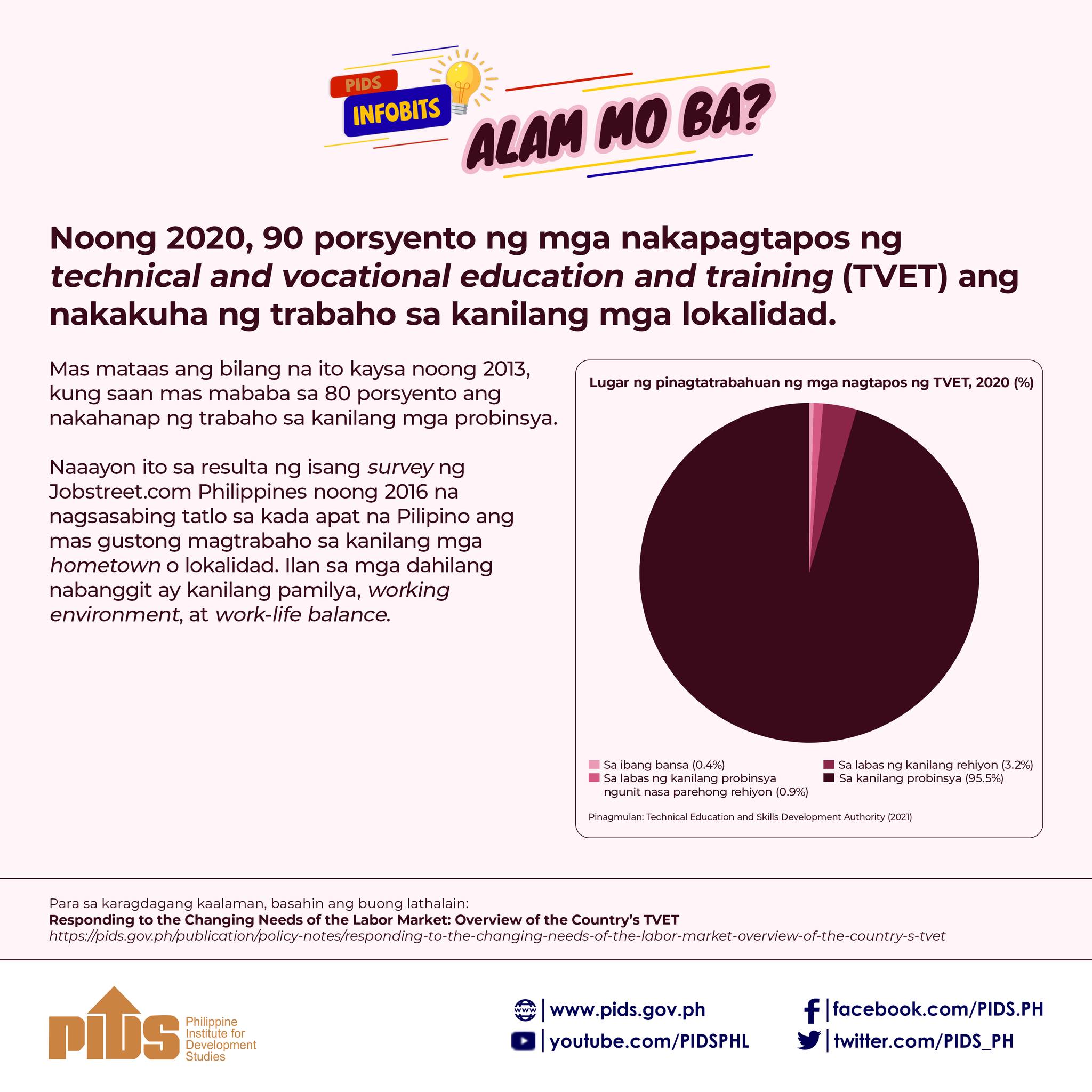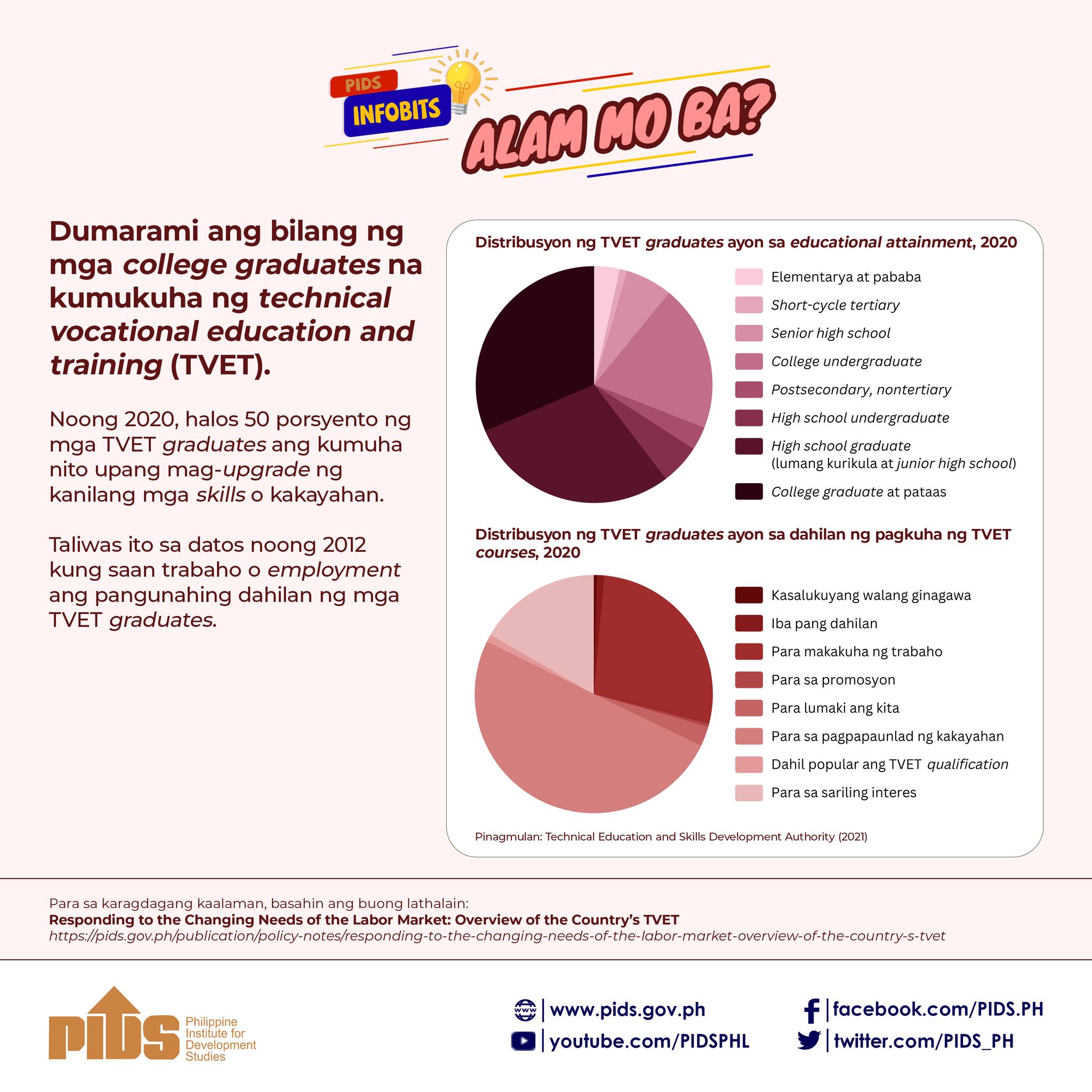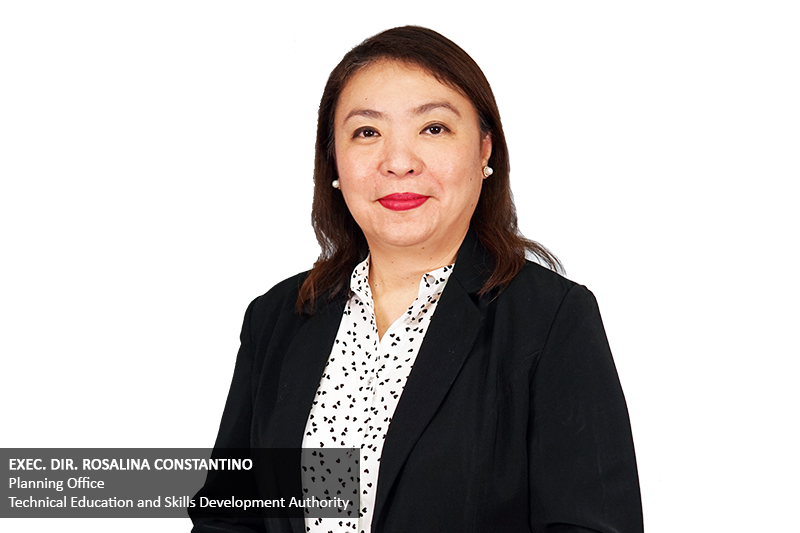
As the Philippines gears toward the new normal of learning, the Technical Education and Skills Development Authority (TESDA) has launched initiatives to engage more learners, including young Filipinos who are not in employment, education, or training (NEET).
This was according to TESDA Planning Office Executive Director Rosalina Constantino during a webinar recently organized by the Philippine Institute for Development Studies (PIDS).
Constantino, a discussant at the webinar, said that TESDA acknowledges the challenges faced by youth NEET in taking up technical and vocational education and training (TVET) programs.
TESDA offers scholarship programs applicable to most TVET clientele, including the youth NEET.
“All of these scholarships provide an average of PHP 350 allowance [per day] for each trainee…In view of the [COVID-19] pandemic, an additional PHP 500 [for] health and protective equipment and [another] PHP 500 [for] internet [expenses] [are given],” Constantino said.
The TESDA official also shared that they have implemented the flexible learning delivery (FLD) arrangement as part of their continuity plan, the OPLAN TESDA Abot Lahat.
“The FLD offers alternatives to face-to-face training not just to comply with the restrictions of the pandemic but in recognition of the various needs of individuals, industries, and communities. [It] is composed of [learning through] online, blended, distance, face-to-face, and the combination of these different learning modalities,” she explained.
Further, the agency also launched the TESDA Online Program (TOP), a web-based platform that offers free online technical and skills development courses for Filipino workers.
For those in far-flung areas, TESDA continues to extend its training programs through mobile training laboratories.
“These innovations in e-learning and flexible arrangements make TVET more accessible, inclusive, sustainable, and agile even during social disruptions brought about by changing landscapes,” the TESDA executive director said.
Meanwhile, TESDA has also started identifying the skill requirements in the eight priority sectors included in the National TESD Plan, namely, agriculture, electronics, health and wellness, information technology and business process management, manufacturing, tourism, transportation, communications and logistics, and construction.
“Guided by the national TESD plan, [we] intend to boost the supply of quality skilled workers in these sectors to meet the expanding demands of industries in a growing economy,” she said.
To strengthen its labor market information capacity, TESDA conducted skills needs anticipation studies and implemented the area-based and demand-driven TVET framework in the field. With this, TESDA “makes sure that the training programs it produces are in line with the current and future skills needs of the industry”.
Finally, Constantino said it is important to promote regular dialogue between the government and TVET providers.
“TESDA calls on the national government agencies involved in providing better access to employment, education, and training to our youth to convene and start working on addressing these identified needs of the youth,” she concluded. ###
You may watch the webinar at https://fb.watch/bk4oaJZGIy/ or https://youtu.be/h9idexeutC8.
For more videos of PIDS events, go to https://www.pids.gov.ph/videos.
This was according to TESDA Planning Office Executive Director Rosalina Constantino during a webinar recently organized by the Philippine Institute for Development Studies (PIDS).
Constantino, a discussant at the webinar, said that TESDA acknowledges the challenges faced by youth NEET in taking up technical and vocational education and training (TVET) programs.
TESDA offers scholarship programs applicable to most TVET clientele, including the youth NEET.
“All of these scholarships provide an average of PHP 350 allowance [per day] for each trainee…In view of the [COVID-19] pandemic, an additional PHP 500 [for] health and protective equipment and [another] PHP 500 [for] internet [expenses] [are given],” Constantino said.
The TESDA official also shared that they have implemented the flexible learning delivery (FLD) arrangement as part of their continuity plan, the OPLAN TESDA Abot Lahat.
“The FLD offers alternatives to face-to-face training not just to comply with the restrictions of the pandemic but in recognition of the various needs of individuals, industries, and communities. [It] is composed of [learning through] online, blended, distance, face-to-face, and the combination of these different learning modalities,” she explained.
Further, the agency also launched the TESDA Online Program (TOP), a web-based platform that offers free online technical and skills development courses for Filipino workers.
For those in far-flung areas, TESDA continues to extend its training programs through mobile training laboratories.
“These innovations in e-learning and flexible arrangements make TVET more accessible, inclusive, sustainable, and agile even during social disruptions brought about by changing landscapes,” the TESDA executive director said.
Meanwhile, TESDA has also started identifying the skill requirements in the eight priority sectors included in the National TESD Plan, namely, agriculture, electronics, health and wellness, information technology and business process management, manufacturing, tourism, transportation, communications and logistics, and construction.
“Guided by the national TESD plan, [we] intend to boost the supply of quality skilled workers in these sectors to meet the expanding demands of industries in a growing economy,” she said.
To strengthen its labor market information capacity, TESDA conducted skills needs anticipation studies and implemented the area-based and demand-driven TVET framework in the field. With this, TESDA “makes sure that the training programs it produces are in line with the current and future skills needs of the industry”.
Finally, Constantino said it is important to promote regular dialogue between the government and TVET providers.
“TESDA calls on the national government agencies involved in providing better access to employment, education, and training to our youth to convene and start working on addressing these identified needs of the youth,” she concluded. ###
You may watch the webinar at https://fb.watch/bk4oaJZGIy/ or https://youtu.be/h9idexeutC8.
For more videos of PIDS events, go to https://www.pids.gov.ph/videos.

